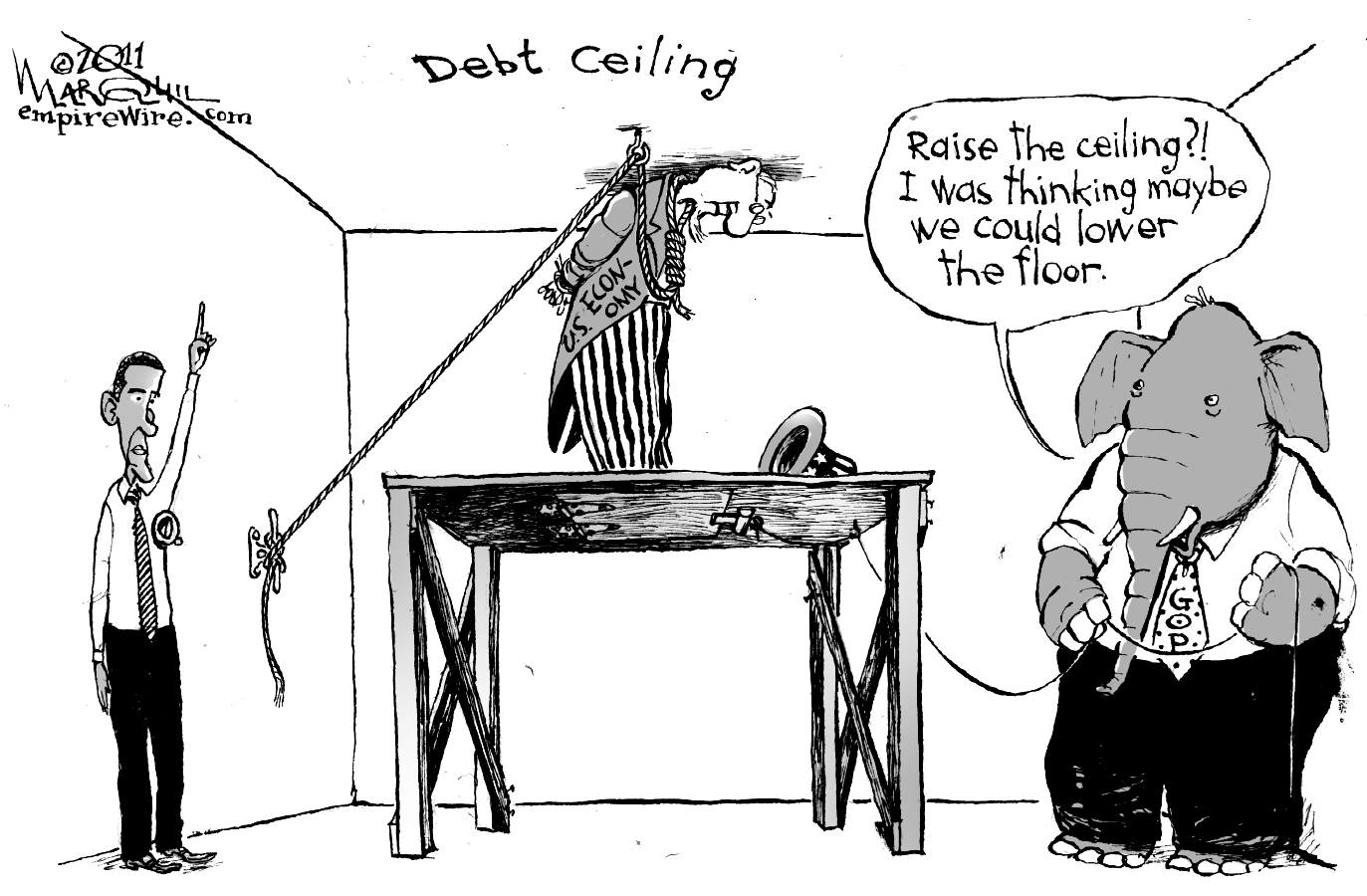“The end of democracy and defeat of the American Revolution will occur when government falls into the hands of the lending institutions and moneyed incorporations. The Bank of the United States is one of the most deadly hostilities existing against the principles and form of our Constitution. The system of banking is a blot [defect] left in [unsolved by, and unfortunately tolerated by] all our Constitutions [state and federal], which if not covered [eventually solved and revoked] will end in their destruction. I sincerely believe that banking institutions are more dangerous than standing armies; and that the principle of spending money to be paid by posterity is but swindling futurity [on the greatest possible scale].” – Thomas Jefferson
 In a recent joint poll conducted by CBS and the New York Times 56% of voters said that the economy was the biggest issue today. However, the poll distinguished between “economy” and “federal budget deficit” and while a strong majority responded with economy only 15% stated that the federal budget deficit was the most important issue. Regardless of the distinction, it is apparent that Americans are very concerned about the state of our economy including the national debt crisis. However, I don’t think the public at large is fully aware of just how serious our national debt is or what is required of them to reverse this disturbing trend in our government’s handling of its finances. American voters must be uncompromising in electing to office only those men and women who have a strong history of reducing, and not merely limiting, government spending, growth and banking power. Too many politicians today throw out keywords like “free market” or “small government” and then promote bigger government, increased corporatism, and continued accrual of a colossal national debt.
In a recent joint poll conducted by CBS and the New York Times 56% of voters said that the economy was the biggest issue today. However, the poll distinguished between “economy” and “federal budget deficit” and while a strong majority responded with economy only 15% stated that the federal budget deficit was the most important issue. Regardless of the distinction, it is apparent that Americans are very concerned about the state of our economy including the national debt crisis. However, I don’t think the public at large is fully aware of just how serious our national debt is or what is required of them to reverse this disturbing trend in our government’s handling of its finances. American voters must be uncompromising in electing to office only those men and women who have a strong history of reducing, and not merely limiting, government spending, growth and banking power. Too many politicians today throw out keywords like “free market” or “small government” and then promote bigger government, increased corporatism, and continued accrual of a colossal national debt.
One must look no further for a prime example than to conservative Rick Santorum to readily see this hypocrisy. (I don’t mean to pick on Santorum. Virtually every federal legislator is guilty of increasing government spending, Santorum is but an example) While Santorum purports small government on the principle of Catholic subsidiarity his voting record tells a far different story. Unfortunately, many Christian voters have chosen to ignore Santorum’s big government policies because of his more genuine social conservatism but, while its true that issues like abortion and marriage are of grave importance, what America needs to realize is that our staggering national debt is not merely an economic issue – its also a moral one. I know that’s a foreign concept to a great many people, especially considering the social taboo that surrounds talking about finances, but just as a gambling or credit card addition is a moral issue so is our out of control spending, except on a societal level. Take the image below, illustrating our national debt in terms of a household budget:
For a family to live on vast sums of cash that doesn’t belong to them and then make no effort to pay back what they owe isn’t just imprudent, its wrong, and other people end up suffering for it. The same is true for our government and if you think the numbers above are overwhelming, well, you haven’t seen anything yet. According to the U.S. National Debt Clock our nation’s total liability per taxpayer is $1,039,057. That’s right, over one million dollars per individual. Our national debt accrues an annual interest of $11,971 per citizen. That’s how much you’d have to pay every year just to cover our debt’s interest. We’ve accrued this debt and its our responsibility to start paying it off. Today. Otherwise we pass this yoke on to our children, and their children, and on and on. What short-term benefits our out-of-control spending habits may yield to us now is nothing in comparison to the blow to future Americans’ very livelihoods when they must pay off their parents’ reckless use of the “federal credit card”. 
Ron Paul has been called “extreme”, “radical”, and even “crazy” for his economic plan to cut 1 trillion dollars from the federal budget in the first year of his term and, yes, such a plan will certainly mean sacrifices on the part of many Americans. However, if you look again at the picture above you’ll see that even a 1 trillion dollar budget cut will not stop, much less even begin to reverse, our national debt. Are we so selfish that we can’t even tighten our belts enough to significantly slow the swelling of our national debt? That we would put that burden entirely upon future generations? Are we that mad with greed?
To learn more about our national debt crisis I recommend you watch the following documentary, I.O.U.S.A, which offers some valuable insights into the financial state of the Union and what part we play as individuals:


 Check out the
Check out the  In a recent
In a recent 

